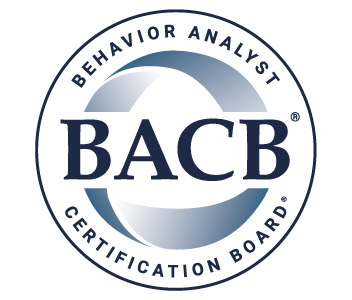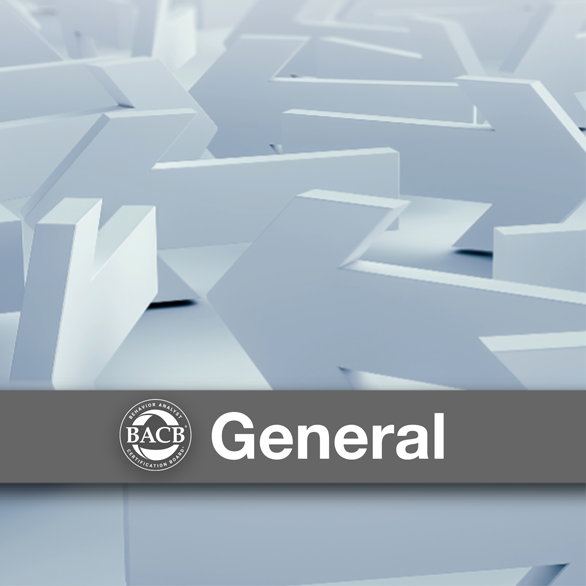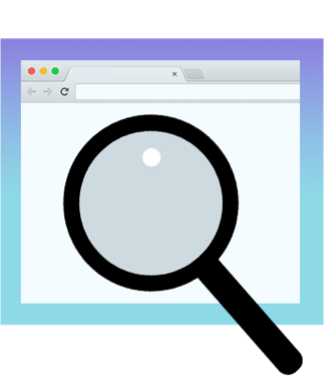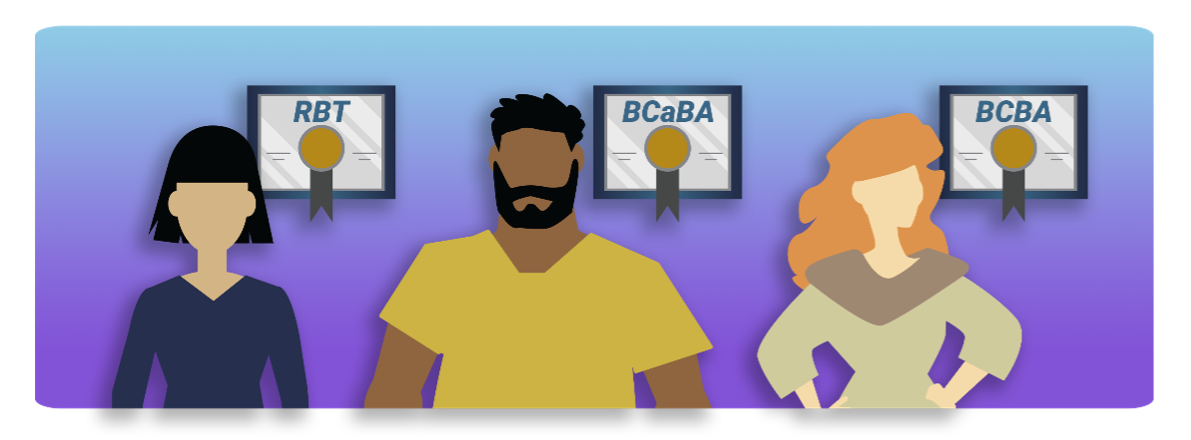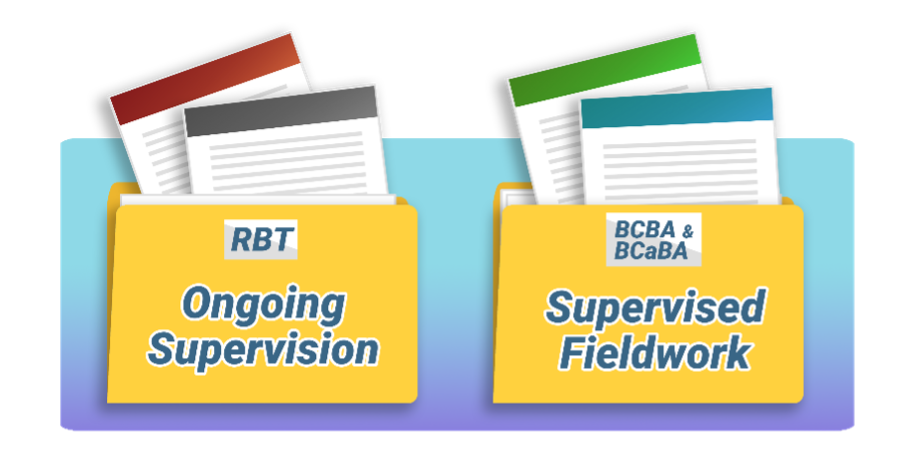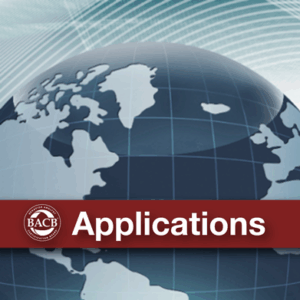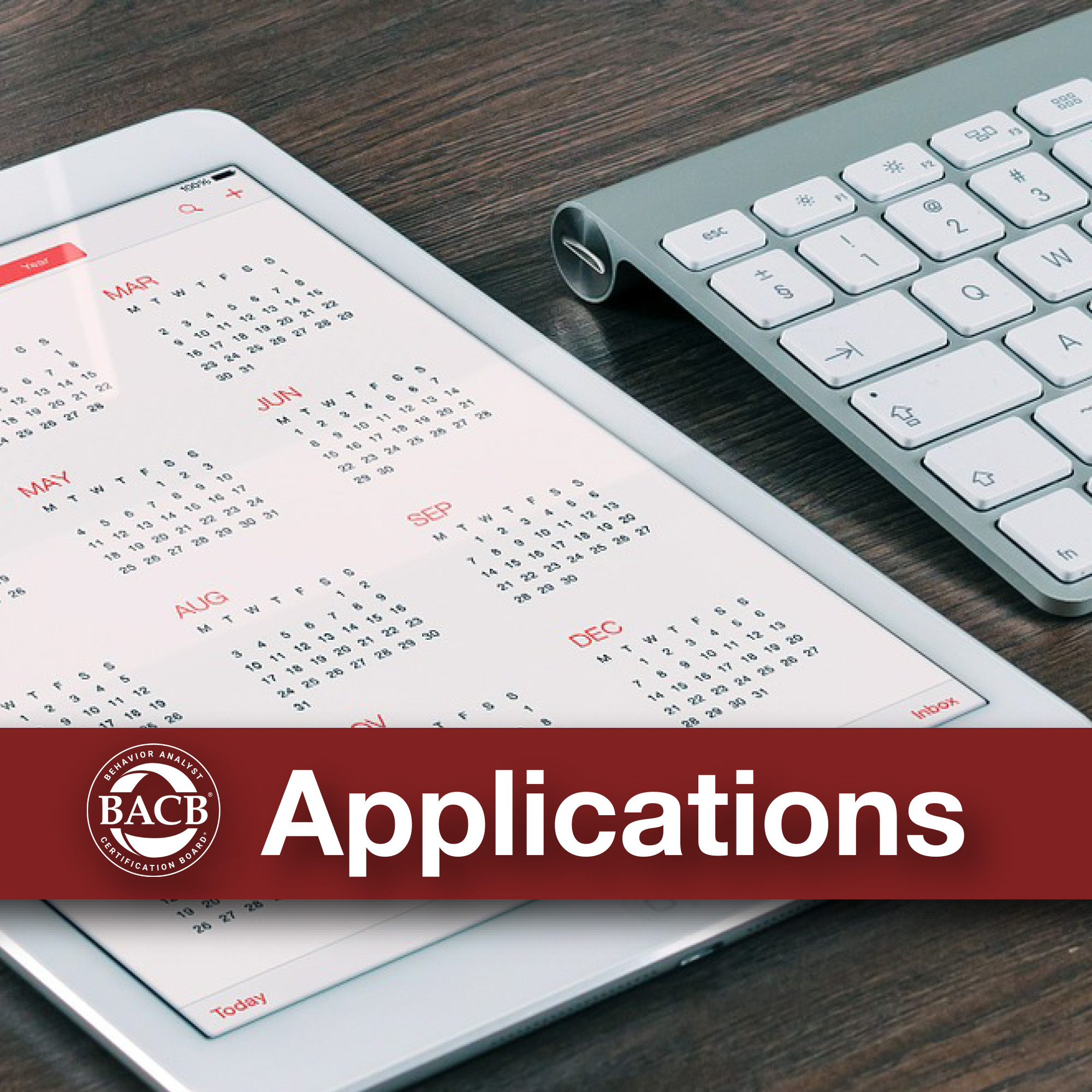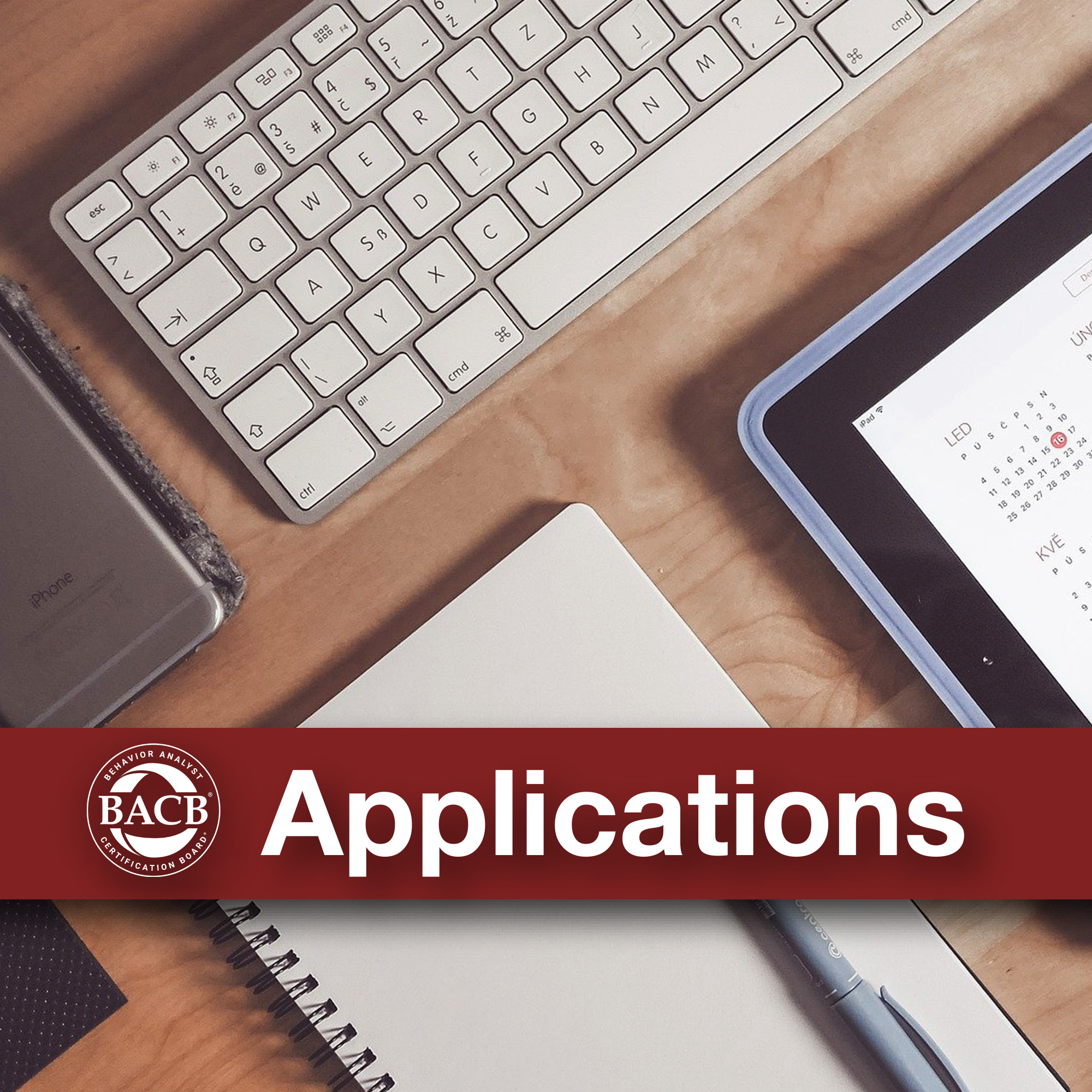
Being an RBT Supervisor can be rewarding. After all, you’re directly impacting someone’s professional development and growth! But the journey of a supervisor isn’t always a straightforward one. This blog post was made to help you navigate the difficult, unexpected parts of being a supervisor, no matter how long you’ve been doing it. Keep reading to learn how to prevent and address these common scenarios.
Scenario: An RBT under your supervision has multiple supervisors and clients at your organization, and they just told you that they didn’t meet the supervision requirements for the month.
How to Prevent It: If you haven’t encountered this scenario yet, that’s great! Here are some tips to continue setting you and your supervisees up for success:
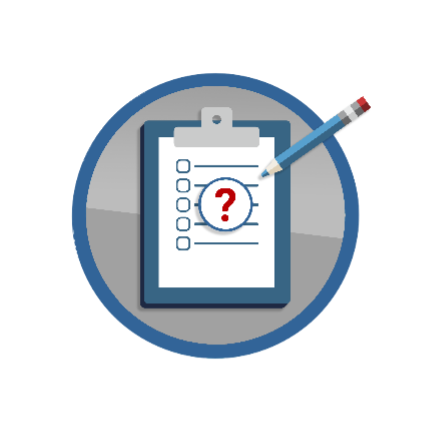
- Make sure the RBT supervision structure at your organization is effective. You can start by reviewing the roles of RBT supervisors in the RBT Handbook. For example, if you don’t have an RBT Requirements Coordinator at your organization, that might be something to consider implementing.
- Think about establishing a communication system between the supervisors, coordinators, and managers at your organization. That way, you can work together to ensure that all RBTs are in compliance and all documentation is properly completed and stored.
- Clearly communicate to your supervisees how, where, and when they must document their supervision. For example, you could give them a supervision log, show them how to use it, and share tips for remembering to update it after each supervision session.
- Become familiar with the Supervision Checklist for RBTs, and share it with your supervisees. Beyond keeping them organized, it will help them better understand the supervision requirements and encourage them to take ownership of their supervision experience.
How to Address It: As you know, when a certificant doesn’t comply with a BACB requirement—accidentally or otherwise—they must self-report the violation to the BACB. As their supervisor, you can support them through the process. Consider showing them the Self-Reporting web page, guiding them through the submission process, and helping them gather any documentation they might need. Reassure them that self-reporting doesn’t always lead to consequences like the suspension of their certification. Lastly, make sure they know that they can continue working and representing themself as an RBT while they wait to hear back from us.
Additional Resources: We have two podcast episodes to get you and your supervisees up to speed on this scenario: Your Ethical Responsibilities as an RBT, which covers self-reporting in-depth, and RBT Supervision Systems, which covers effective supervision structures, communication systems, and much more.
Scenario: You just started supervising an RBT who recently left another organization. They need to renew their certification soon, but they just disclosed that they didn’t consistently receive the minimum amount of supervision at the other organization.
How to Prevent It: It’s not uncommon for RBTs to work in multiple service-delivery settings throughout their career, so it’s best to be prepared for scenarios like this. When an RBT first starts at your organization, consider asking them about the supervision they received in previous settings. Taking care to ask this question early on means that important disclosures like this won’t come as a surprise later. We also encourage you to review the maintenance requirements described in the RBT Handbook together. By putting everything on the table from day one, you can get ahead of misunderstandings, confusion, and accidental noncompliance.
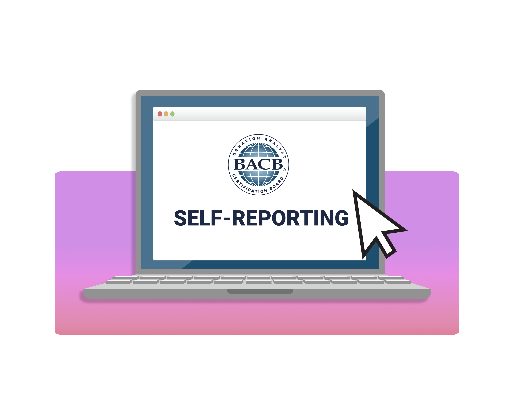
How to Address It: Similar to the previous scenario, the first thing to do is encourage them to self-report—even if they aren’t currently renewing their certification. Don’t forget to offer your support along the way, and moving forward, make sure that you and the other supervisors at your organization are providing sufficient supervision. One way to offer support is to review the RBT Supervision Audit Process infographic with them.
If we end up auditing the RBT’s supervision after receiving their report, we will only contact the RBT and the RBT Supervisor(s) and/or RBT Requirements Coordinator on record during the audited time period. If that includes you, check your email regularly, and be prepared to give us information or documentation upon request. If we find that the RBT substantially failed to comply with the requirements and they end up losing their certification, this will take effect the day the audit determination is issued.
Additional Resources: Listen to the Better Understanding Supervision as an RBT podcast episode for an in-depth discussion about RBT supervision and why it matters, and be sure to share it with your supervisees. Another great resource for supervisees is the Maintaining Your RBT Certification video.
Scenario: An RBT under your supervision failed to inform you that their certification expired, and they just billed for services.
How to Prevent It: To get ahead of this scenario, you’ll want to do something that may seem self-explanatory: make sure that every RBT at your organization is on record with their RBT Supervisor(s) and/or RBT Requirements Coordinator. That way, all relevant parties will get the automated renewal reminders that we send via email. Look out for the first notification 45 days before the RBT’s certification expiration date. That being said, the RBT should take responsibility for their own certification, proactively working with you and others on record to meet the maintenance requirements and complete their renewal application on time. You can always help by creating internal deadlines and having regular check-ins. Just make sure to reach out to the RBT as early as possible so that they have enough time to renew.
How to Address It: If the RBT happens to provide and/or bill for services with an expired certification, remind them that they cannot represent themself as an RBT, and they must self-report the violation to the BACB. Their next step should be alerting your organization and relevant funder(s) to the billing issue. At that point, you could help the behavior technician (i.e., former RBT) find out whether they are still within their 30-day reinstatement period. If they are, they can complete the maintenance requirements, submit their renewal application, and pay all standard and late fees. Just remind them that they cannot provide or bill for services until their RBT certification is reactivated. If they are not within the 30-day reinstatement period, unfortunately, they must meet the then-current eligibility requirements and reapply for certification.
Additional Resources: To give your supervisee more insight into the renewal process, go over the RBT Renewal Steps infographic together, and answer any questions they might have.
Scenario: An RBT under your supervision had a Notice of Alleged Violation (Notice) filed against them, and they have been given an opportunity to respond (OTR).

How to Prevent It: Ethics, ethics, ethics! To help prevent this scenario from happening, it’s important to make discussions about ethical practices and the RBT Ethics Code (2.0) an integral part of your organization’s culture, from onboarding to regular meetings and check-ins. Having these conversations often is a great way to ensure that your supervisees feel prepared, supported, and comfortable enough to talk freely about the subject.
How to Address It: Part of your job as a supervisor is to offer support in challenging situations like these, so here are a few things that you can do: You can review the Code-Enforcement Procedures with the RBT, helping them become familiar with the Notice intake and routing process so that they know what to expect. You can also make sure they fully understand the notification email we sent, which includes important deadlines, consequences for not responding, the OTR form, and guidance on preparing a response.
Additional Resources: Although your number one resource for this scenario is the RBT Ethics Code (2.0), brush up on the Reporting to the Ethics Department web page for a comprehensive look at the reporting process, considerations, timelines, and much more.
Scenario: An RBT under your supervision just quit without providing notice.
How to Prevent It: Although this scenario is ultimately out of your control, you can lay groundwork early on that will help discourage it. Introduce your supervisees to the Continuity of Services: Reminders for RBTs document, which was designed to help them navigate changes in their ability to provide services. It highlights the importance of RBTs as service providers and the impact they can have on their clients, both positive and negative, so we suggest reviewing it together as often as you see fit. If you happen to be the one leaving a service-delivery setting, check out its companion resource, the Continuity of Services toolkit, for guidance on successfully transitioning the cases you manage.
How to Address It: First things first, if you are on record as the RBT’s supervisor or requirements coordinator, remove them from your BACB account. This releases you from the responsibility to provide oversight for their service delivery and certification moving forward. Your next thought might be to report them to the BACB, but we ask you to consider that not all situations like this are reportable. Although we encourage all certificants to be mindful of their impact on clients when transitioning services, the RBT Ethics Code (2.0) doesn’t specify the when or how. So, make sure to review all relevant resources before making your decision.
Additional Resources: The March 2023 BACB Newsletter goes into greater detail about what to do when an RBT quits without providing notice. Take a look if you want to learn more.
RBT Supervisors, RBT Requirements Coordinators, and others who oversee or manage RBTs, thank you for taking the time to become familiar with these scenarios. You can never be overprepared! With preparation comes safe practice, adherence to the requirements, and smooth(er) sailing through your journey as a supervisor. Until next time.
Other Helpful Resources
- August 2020 BACB Newsletter, Taking Supervision Seriously Article: Recognize the vital role you play in service delivery and supporting service providers during their professional-development journey.
- 7 FAQs for RBTs Pursuing BCBA or BCaBA Certification Blog Post: Learn how to answer common questions about how trainees can accrue fieldwork hours while working as RBTs, all while meeting both sets of supervision requirements.
- Considerations for Reporting an Alleged Violation Against an RBT: Before a situation arises, know what is and isn’t reportable to the BACB.
- Self-Reporting section of the RBT Handbook: Remember the important details of self-reporting so that you can offer guidance.
